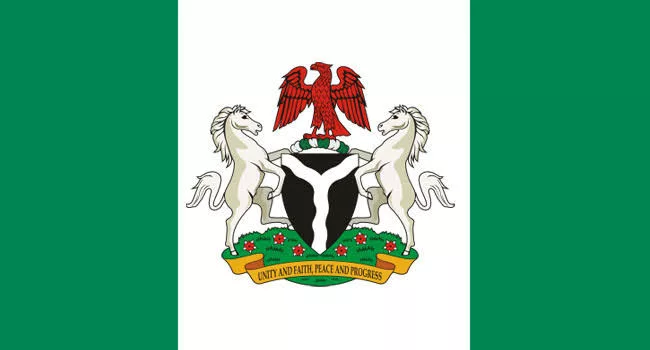By Leadership News
Copyright leadership

As the world grapples with a deepening teacher shortage, Nigeria stands at the epicentre of this educational catastrophe, threatening the foundation of Sustainable Development Goal 4 (SDG 4) for inclusive and quality education by 2030.
The United Nations Educational, Scientific and Cultural Organisation (UNESCO) has sounded the alarm. Byi 2030, the globe will require an additional 44 million primary and secondary teachers to meet universal education targets, with attrition rates nearly doubling from 4.62 per cent in 2015 to 9.06 per cent in 2022.
In Nigeria, this crisis manifests in staggering out-of-school figures—estimated at 18.3 million children in 2024, representing one in five globally out-of-school youth—and a chronic shortfall of qualified educators.
The call for an urgent teacher recruitment drive, enhanced welfare packages, and sweeping policy reforms to salvage the nation’s future is becoming even more strident and compelling if we are not to condemn generations to illiteracy and underdevelopment.
Globally, the teacher shortage is no abstract concern but a tangible barrier to progress. UNESCO’s Global Report on Teachers, released in April 2025, reveals that high-income region like Europe and North America face recruitment woes despite robust systems, leading to overcrowded classrooms and diminished learning outcomes.
In developing nations, the gap is even more pronounced, exacerbated by economic instability, inadequate training, and low prestige associated with the profession. The COVID-19 pandemic accelerated this trend, with many educators exiting due to burnout and poor pay, leaving 84 million children at risk of remaining out of school without intervention.
This imperils SDG 4, as nations struggle to provide equitable education, perpetuating cycles of poverty and inequality. For Nigeria, these global warnings mirror our own failings, where the crisis is amplified by conflict, poverty, and systemic neglect.
The statistics in Nigeria are damning. With approximately 20 million children out of school—driven by insecurity in the Northeast, economic barriers in the South, and cultural factors nationwide—the country accounts for 15 per cent of the global total. The Northeast alone sees two million crisis-affected children displaced, with persistent attacks damaging school infrastructure and exacerbating teacher shortages.
At the primary level, only 915,913 teachers serve 31.7 million pupils, resulting in unfavourable ratios that hinder effective learning. Public primary schools face a deficit of over 165,000 teachers, particularly acute in rural areas, leading to educational disparities. The government’s education budget, hovering between 5-9 per cent of national expenditure, falls woefully short of UNESCO’s recommended 15-20 per cent, starving the sector of resources for recruitment and infrastructure.
This shortfall is not merely numerical; it reflects deeper governance lapses. Teachers endure low salaries, delayed payments, and poor working conditions, prompting high turnover and migration abroad.
In states like Anambra and Enugu, recent initiatives—such as recruiting 5,000 merit-based teachers and allocating 33 per cent of the 2025 budget to education—offer glimmers of hope, but these are exceptions in a landscape of neglect.
The establishment narrative of incremental progress crumbles when confronted with realities like the Almajiri system, where millions of street children receive no formal education, or conflict zones where schools remain shuttered. Nigeria risks a “literacy crisis” that undermines economic growth and social stability without addressing these.
The global imperative demands action tailored to Nigeria’s context. First, launch nationwide teacher recruitment drives, prioritising qualified professionals through transparent, merit-based processes. In collaboration with states, the Federal Ministry of Education should target filling the 165,000-plus primary gaps, drawing from successful models like Rwanda’s post-conflict teacher surge, which boosted enrolment to 98 per cent. Incentives such as rural allowances and housing could attract talent to underserved areas.
Second, enhance teacher welfare to stem attrition. Competitive salaries, along with living costs, professional development, and mental health support, are essential. UNESCO’s call for resilient systems resonates here—Nigeria must invest in training to equip educators with digital tools and inclusive pedagogies, countering the exodus to freelance or overseas opportunities. The Teachers Registration Council of Nigeria’s concerns about unqualified staff highlight the need for ongoing certification and upskilling.
Third, policy reforms for systemic change should be enacted. Increase education funding to at least 15 per cent of the national budget, as pledged in 2021 but unfulfilled. Integrate out-of-school children through alternative schools and community programmes, as seen in World Bank-backed initiatives like the US$700 million loan for adolescent girls’ empowerment. Emulate Finland’s teacher autonomy or Singapore’s merit-based systems to foster innovation and equity.
As a newspaper committed to good governance, we urge President Bola Tinubu’s administration, state governors, and the National Assembly to prioritise this crisis. The global teacher shortage is a wake-up call—Nigeria cannot afford to lag. By investing in educators, we invest in our children’s future, ensuring SDG 4 becomes reality rather than rhetoric. The time for excuses is over; action must begin now, or we risk a generation lost to ignorance and inequality.



